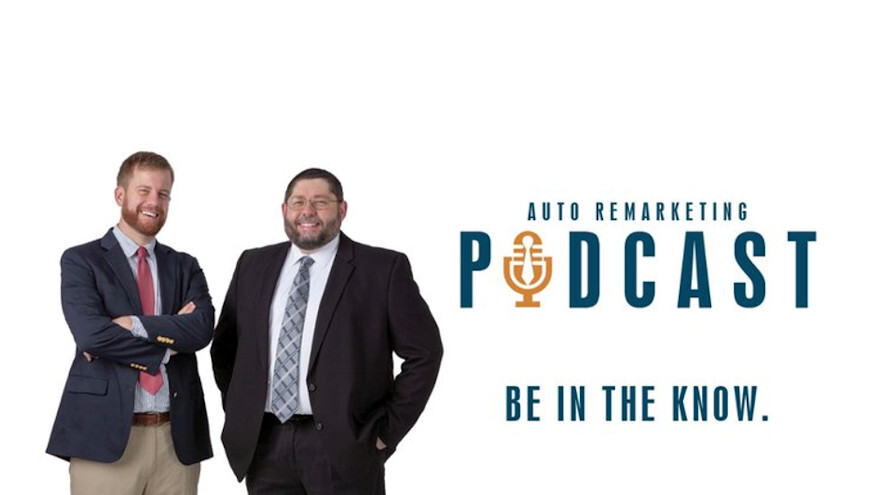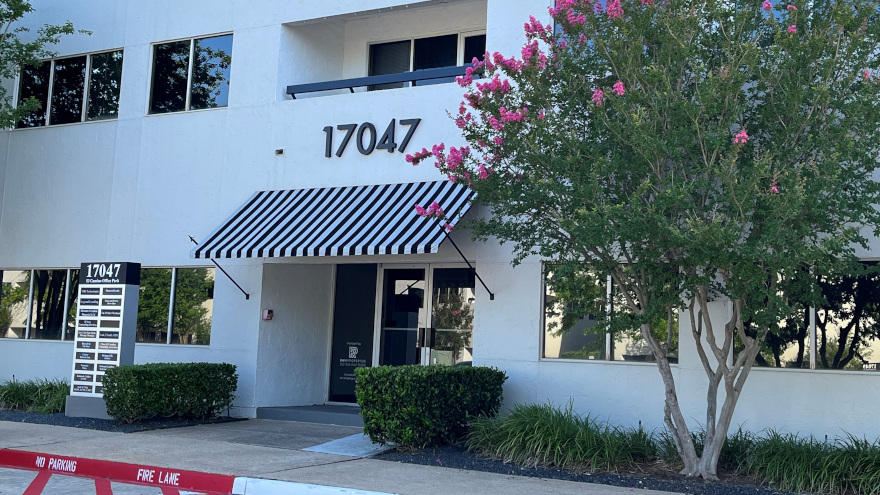In celebration of Hispanic Heritage Month, the 2022 Hispanic Market Report generated by Claritas, a data-driven marketing company, showed the U.S. Hispanic population is exploding, with 89% growth since 2000.
According to the report, around 66.5 million Hispanic consumers live in the United States, representing more than $1.7 trillion in annual buying power.
Perhaps those trends are why Tricolor tech-enabled Community Development Financial Institution (CDFI) and one of the nation’s largest used-vehicle retailers that caters to Hispanic consumers, recently announced the closing of a $100 million warehouse facility with Cincinnati-based Fifth Third Bank, secured by contracts originated across its growing footprint, which spans five states, 20 markets and 55 retail hubs.
“The addition of Fifth Third Bank to our capital structure is another strong validation of our strategy and another significant step towards diversifying our sources of capital to support our growth as we continue expanding our platform into new markets,” Tricolor founder and CEO Daniel Chu said in a news release.
Tricolor has more than doubled its origination volume over the past two years, as well as doubled its market share over the past three years. The company said only CarMax and Carvana sell more used vehicles than Tricolor in Texas.
“We are excited to support Tricolor and its purpose-driven strategy to expand financial inclusion to a financially underserved yet critical segment of the U.S. population,” said Steven Ellis, managing director of asset securitization at Fifth Third Bank. “We’ve followed their progress for the last decade and the commitment of the Tricolor team to deliver a compelling and unique value proposition is highly admirable.”
Tricolor estimated the more than 59 million Hispanics in the United States would collectively rank as the eighth largest economy in the world. Yet, according to the FDIC National Survey of Unbanked and Underbanked Households, 32% of this U.S. Hispanic population has no or limited access to mainstream credit.
According to the U.S. Bureau of Labor Statistics, over 80% of the workforce growth in the U.S. over the last dozen years can be attributed to the Hispanic population, yet fewer than one in six Hispanics in the US can work remotely.
Meanwhile the latest installment of Claritas’ New American Mainstream data series showed figures found in the firm’s report have been recently updated to reflect the latest U.S. population data and the U.S. Census Bureau’s decennial Undercount and Overcount report for the 2020 Census.
After the updated U.S. Census data became available in May 2022, Claritas said its demographers went to work adjusting their estimates and projections to reflect the significant undercount of multicultural groups in many states.
Consequently, Claritas explained its 2023 update shows higher growth in multicultural population segments than any in recent memory.
Claritas expects growth in multicultural segments to continue, especially in the Hispanic population, which is estimated to account for 58% of total U.S. population growth in the next five years.
In fact, the Hispanic population is expected to add an average of 4,091 new members each day from 2023 to 2028 — growing to more than 74 million in total population by 2028. In contrast, the non-Hispanic White population is projected to LOSE a whopping 3,148 members each day on average.
“Multicultural consumers — including the 66.5 million Hispanic consumers living in the United States today — represent a largely untapped potential growth area for many marketers,” Claritas senior vice president of product leadership Ron Cohen said in another news release. “Marketers that build relationships with multicultural consumers today can reap big benefits as the population of these groups continue to explode in the future.”
Brett Scott, who is vice president of government affairs at the National Independent Automobile Dealers Association, took some time away from being on Capitol Hill for this episode of the Auto Remarketing Podcast.
Scott recapped what the atmosphere is like around lawmakers and their staffs, as NIADA gears up to host its National Policy Conference on Sept. 19-21.
To listen to the conversation, click on the link available below, or visit the Auto Remarketing Podcast page.
Download and subscribe to the Auto Remarketing Podcast on iTunes or on Google Play.
National Lenders General Agency made its sixth significant move since March, as the company looks to provide innovative tech solutions for independent dealers and special finance companies.
This week, National Lenders added to its offerings by rolling out cloud-based insurance tracking software.
National Lenders said its clients now have a cost-effective, automated solution to the labor-intensive task of tracking, verifying and communicating with customers on new and existing contracts.
The company highlighted automated insurance tracking can provide dealers and finance companies a safe, secure way to mitigate insurance losses while saving time and money.
National Lenders’ technology can allow users the ability to access data and pull real-time reports, reducing error and the need for costly staff expenditures.
The company added that buy-here, pay-here dealers can enjoy increased profitability as the number of contracts with proper insurance coverage rises in their portfolios.
“Dealers and lenders are seeking innovative solutions to accelerate performance and growth in today’s dynamic economy,” National Lenders executive vice president and chief operating officer Eric Hurst said in a news release.
“Our business model is directed at aligning the right products, strategies, technology, and people to help our clients reach their strategic objectives,” Hurst continued.
Among the other moves National Lenders has made since March, the company announced Hurst and Ken Terkel as top executives, added four other executives who are involved with sales and marketing, launched a contractual protection insurance (CPI) program and joined independent dealer associations in four states.
Subprime Analytics president Ken Shilson appeared again on the Auto Remarketing Podcast to discuss what he thinks is one of the most important operational challenges buy-here, pay-here dealers are going to face before the end of the year.
It’s implementation of the Current Expected Credit Loss (CECL) accounting standards.
Shilson offered recommendations for how both BHPH dealers and their accountants can get organized in order to comply with CECL, which goes into effect on Jan. 1.
To listen to the conversation, click on the link available below, or visit the Auto Remarketing Podcast page.
Download and subscribe to the Auto Remarketing Podcast on iTunes or on Google Play.
Signed into law in June 2009, the $3 billion Car Allowance Rebate System (CARS) law, commonly called “Cash for Clunkers,” by President Barack Obama had numerous, had many long-lasting, effects on the automotive retail industry.
The similarities — and differences — between 2009 and what automotive retailers face in 2022 can give dealers insights into risk mitigation and avoiding financial losses.
The Great Recession and Cash for Clunkers
A global economic crisis resulting from a meltdown in mortgage-backed securities market resulted in home prices plummeting and borrower defaults. Huge financial losses spread to every corner of the globe. That caused the 2007 mortgage crisis, the 2008 financial crisis, and the Great Recession. It was the worst recession since the Great Depression.
That’s a very simplified version of a series of serious and complicated financial mistakes by financial institutions, legislators, government regulators, and consumers.
In a move to save several major U.S. auto manufacturers from bankruptcy, lawmakers passed CARS giving consumers up to $4,500 toward the purchase of a brand new vehicle for their old “running” vehicle. The older vehicle could not be re-sold.
The program was designed to spur new car sales, and, importantly to the Obama Administration get older, higher polluting vehicles off the road and replace them with cleaner, more energy-efficient vehicles, as evidenced by the rules governing the law. Qualifying vehicles had to have fuel efficiency of 18 mpg or less, and consumers had to purchase a new vehicle that had an average efficiency of at least 22 mpg.
More than 750,000 vehicles, many of which would have been traded in, wholesaled, and sold by BHPH and subprime dealers, were removed from the U.S. auto fleet. The program did have its desired effect in prompting new car sales, but had many unforeseen and undesirable consequences for used car sales.
Effects on the used car industry were immediate and long-lasting. Wholesale prices of older vehicles not eligible for the Cash for Clunkers program jumped from $2,000 at the time, to $4,000 to $5,000. BHPH dealers who relied on these vehicles to make their in-house financing models work had difficulty finding the inventory they needed, at the right price.
What’s happening now?
Today, BHPH dealers and subprime finance companies face similar inventory shortages and high values for very different reasons including:
• Chip shortages in the new car industry
• Pent-up consumer demand as a result of the Global Pandemic
• Direct government stimulus payments to consumers
• Trillions spent to bolster the economy spurring inflation
• Another $1.4 trillion to be spent for U.S. infrastructure
These challenges have made it difficult for subprime and BHPH finance companies to find the inventory they need at the cost they need to make their models work.
The economics of the BHPH and subprime business models are the same now as they were 21 years ago. Consumers have trouble securing a large down payments, have a maximum weekly or bi-weekly payment that they can afford, and require regular attention from collectors to help keep them on track to make timely payments.
Today, record-high used vehicle values, near double-digit inflation, and rising costs of floorplanning or lines of credit, and higher wages for employees are putting pressure on the BHPH business model in ways that have never been experienced to this degree.
Dealers can take a page from dealer response to the economic challenges of the Great Recession. Then, dealers asked for:
• A higher down payment
• Lengthened the loan term
• Intensified their collections efforts and secured their collateral as quickly as possible in the event of a default.
Those efforts are being made now, but they can only be taken so far. Adding too many months to a finance contract results in greater default rates. Consumers, challenged by higher food and fuel prices, have only so much they can put down on a new car.
Good news?
Economic contractions and recessions have boded well for the subprime and BHPH markets in the past. Prime consumers who take a credit hit, become subprime customers. Subprime customers who take a credit hit become BHPH customers. In each case, finance companies typically get better quality customers that are more accustomed to paying bills on time and maintaining their vehicles.
This is likely to occur again should the economy take a significant downturn, as banks, investment corporations, and economists have begun predicting. How it will play out, exactly, in terms of consumer demand and creditworthiness is difficult to predict, but a downturn is more likely to occur than not.
Protecting your assets
Twenty years ago the collateral protection industry was relatively young. Many thousands of BHPH and subprime finance companies were using GPS tracking and payment reminder devices. Discussions in dealers Twenty Groups weighed the pro and cons of adding $150-$250 to the cash in deal for every unit they sold. Many dealers opted not to use GPS tracking and payment reminders.
Today, GPS tracking units cost less and generate valuable data analytics. They are generally considered the cost of doing business. Most subprime finance companies and BHPH dealer chains require GPS and/or payment notification devices. Being able to avoid the tremendous losses from having just one vehicle abandoned or impounded makes financial sense for the entire finance portfolio. Having information instantly sent to mobile devices for vehicles exiting or entering geofenced areas, device tampering, real-time vehicle location, all assists finance professionals in loss and risk mitigation.
Economic outlook
Twenty-one years ago political and economic pundits suggested it could take 20 years for the U.S. economy to recover from the Great Recession. Fortunately, while the effects were devasting and business-ending for thousands of dealers and many other small businesses, within just several years there were green shoots everywhere. Technology made huge improvements for consumers and businesses, making products and services less costly and far more beneficial.
Economic challenges in the U.S. economy today are numerous, and in many cases have little precedent. Twenty-one years ago, there was almost nothing the mortgage and banking crises could be compared to in the past, except the Great Depression. We survived those extreme challenges, and we’ll survive these.
David Meyer is president of Advantage Automotive Analytics.
Everything is bigger in Texas evidently, including the amount of top independent dealerships.
Tommy Gregory, owner of Abilene Used Car Sales in Abilene, Texas, was named the 2022 National Quality Dealer of the Year by the National Independent Automobile Dealers Association to close NIADA’s 76th annual Convention and Expo.
In a ceremony Thursday night at the MGM Grand in Las Vegas, Gregory was chosen from the 12 State Quality Dealer finalists for highest honor awarded among NIADA’s dealer members.
Gregory is the eighth National Quality Dealer from Texas, the most of any state.
The National Quality Dealer is chosen by a selection committee of used vehicle industry experts based on a variety of factors, including contributions to the automotive industry and the association, outstanding business operations and community involvement and service.
In accepting the award, Gregory credited his wife of 43 years, Wanda, with helping him build his business from “literally nothing” to success.
“Somehow, I got the right one,” Gregory said, according to an association news release. “I would not be here today without her standing with me every inch of the way through this whole endeavor — the hills and valleys. peaks and low, broke and rich… It’s been awesome.
“I did pretty good, huh?”
Gregory said his dealership was created “by accident.” Having grown up working for his father’s auto repair business, that’s what he was planning to do. But that plan changed when the West Texas oil industry hit hard times in the 1980s.
“We were doing a lot of work for oil companies on their trucks and cars, and we started losing a lot of business,” Gregory recalled. “We ended up working with some used car dealerships and working on their cars. And it didn’t take me long to see those guys were making a lot more money than I was.
“So we started buying and selling a few cars.”
At first Gregory and his father, R.D., simply bought vehicles from oil companies that needed the money, repaired and reconditioned them, then sold them. Eventually, though, they decided to go all in on the used-car business.
In 1991, Gregory emptied his savings account — all $2,200 of it — to partner with his father in opening Abilene Used Car Sales. Within a few years they added financing and became a buy-here, pay-here operation.
In 2003, Gregory bought out his father’s half of the dealership, which has now grown to 24 employees and more than 1,000 sales per year, as well as a 16-bay, 10,000-square foot service facility for repairs and reconditioning, and a related finance company.
R.D. Gregory passed away in 2020, but the dealership is still very much a family business. Wanda has an active role in its operation, son Jason is general manager and twin daughters Jennifer and Amy manage the related finance company, AUCS Financial Inc.
Amy’s husband, Tyler Simmons, serves as sales manager and compliance officer, while Jennifer’s husband, Adam Lovelady, manages the recon location.
The company’s slogan is “We Do Things Better,” and Gregory says he’s committed to “doing the right thing” for his customers, whether that’s helping them through the sales process, making a repair to keep the car on the road or working with them on payments to help them through tough times.
Gregory is heavily involved with Texas IADA, serving as a leader in legislative advocacy and a top contributor to the association’s political action committee. TIADA executive director Jeff Martin also praised his “tireless efforts to help get his fellow dealers in Abilene educated and involved.”
He is also a strong supporter of charitable causes and community involvement, creating programs offering backpacks, school supplies and coats for schoolchildren, giving away vehicles to families in need, making holiday toy donations and contributing time and money to Ben Richey Boys Ranch and family program, among many others.
Gregory said hearing his accomplishments recited and then his name called as National Quality Dealer was “a surreal moment.”
“You start thinking back to how it all started and all the experiences you lived through,” he said. “I’m proud of the fact we were able to build this up to a level where we can offer our customers a good product and we’re able to keep them on the road.
“The main thing we focus on is helping our customers.”
A plan is in place, and the organization has a new leader charged with executing it.
Scott Allen, owner of Auto Land in Haltom City, Texas, began his term as president of the National Independent Automobile Dealers Association for 2022-23 by receiving the President’s Ring last week during the 76th annual NIADA Convention and Expo at the MGM Grand in Las Vegas.
In his inaugural address, Allen, who succeeds 2021-22 president Joe McCloskey, summed up his priority for his term in one word: “execution.”
“Execution of our strategic plan and the important initiatives we’ve started,” Allen said, according to an association news release. “With the help of three boards, 11 committees, a commission and two councils, I believe we are poised to reach the goals we’ve set this year. There will be input from 53 at-large dealers on those committees.
“We as the NIADA board are focused on members first and our state associations next — their growth and success — all while maintaining the viability and sustainability of your national association,” he continued. “And while maintaining the best member benefits, the best advocacy in D.C. and the states, and the best education, conventions and training we can possibly give you.”
Growing up in Fort Worth, Texas, Allen’s focus wasn’t on cars, but on cattle. His father, Gary, was a third-generation livestock broker for the Foley-Allen cattle company in what was then known as “the Wall Street of the West” — the Fort Worth Stockyards.
“From the time I was 13 years old, my summers were going to work with my dad at 5 a.m. every morning,” Allen recalled. “The cattle auction was my stomping grounds. Since I was young and had fresh legs, my job was to chase the cattle, after being sorted by weight, to the auction barn.”
At those auctions, Allen became fascinated by the commodities brokers and the speed at which money changed hands, as well as the frantic pace of the traders. So after graduating from Texas Tech with a degree in business, he pursued his dream and went to work as a stockbroker and Nasdaq trader.
That dream was shaken by the stock market crash of 1987. At about the same time, the Fort Worth Livestock Exchange closed its doors, leaving Gary Allen to look for his next venture.
“My dad noticed all the auctioneers who used to work in the cattle business were shifting over to auto auctions,” Allen said. “He began talking to his accountant, who was also the bookkeeper for several tote-the-note lots in the area, and he pulled me into those conversations.”
Intrigued by the possibilities, Allen and his father met with several local buy-here, pay-here dealers to learn about the business and how to make it a success.
“My dad and I had quite a few laughs years later as we figured out they all lied to us,” he said.
With their dubious advice in hand, the Allens opened Auto Land on Jan. 2, 1991, in a 700-square foot cinder-block building in nearby Haltom City. In the 30 years since, the operation has financed more than 10,000 vehicles with revenues totaling more than $60 million.
When his father passed away in 2003, Allen, who had long been a member of NIADA, decided to become more involved.
“I’d lost that sounding board for all my crazy ideas,” Allen said. “So I thought the state and national associations would be a great place to get more connected to everything independent auto dealer.”
Allen became president of Fort Worth’s local independent dealers association and Texas IADA before joining the NIADA board of directors in 2015, serving as Region III vice president, treasurer, senior vice president and president-elect.
Allen is a Certified Master Dealer and in 2011 was awarded NIADA’s highest dealer honor, the National Quality Dealer award.
Advanced Business Computers of America (ABCoA) rolled out its latest dealership tool on Thursday.
The Software-as-a-Service company known for Deal Pack and cyclCRM announced a new dealer management software (DMS) called DST Dealership Sales Tools.
ABCoA highlighted DST is a brand-new, browser-based DMS built specifically for dealers. The company highlighted dealers can manage inventory and push to websites, desk deals, pull credit, print contracts, attain instant funding, and much more.
DST offers many standard integrations at no charge, with more to come.
ABCoA said users can connect DST and cyclCRM for a fully integrated CRM and to provide consumers a completely online shopping experience.
The company mentioned DST does not charge by the seat or rooftop; as DST charges $1 per deal for unlimited users and unlimited locations.
“ABCoA has pioneered software in the used-car industry for nearly 40 years,” ABCoA customer success manager Amir Dabiri said in a news release. “Over the years, I have converted dozens of DMS systems onto ABCoA software, and I have never seen a DMS as slick and easy as DST.
“Majority of dealerships know they need a new DMS, but they are scared how their team will adapt to change. I promise anyone can use DST, even if they have never used a computer. There is no better price in the industry, and there are no compromises in DST,” Dabiri went on to say.
The company will showcase during next week’s NIADA Convention & Expo in Las Vegas. ABCoA can be found at booth No. 367.
Agora Data and Black Book now are working together to help independent dealerships.
Through a news release distributed on Wednesday, Black Book announced the integration of its VIN-specific valuations and insights into the Agora Data product suite.
The data integration allows Agora Data to improve the precision and effectiveness of its auto dealer financing capabilities.
Agora Data empowers auto dealers and finance companies with access to liquidity, affordable capital, and sophisticated tools to help grow their businesses and build wealth.
“Our market leading platform offers auto dealers a competitive advantage via analytics, affordable capital, and bulk loan purchasing. We are combining our $76 billion of market data with Black Book’s current and forecasted valuation data to offer our customers precision insights that can help them save time, maximize profits, and reduce risk,” Agora Data chief executive officer Steve Burke said in the news release.
Black Book data is available in Agora Data’s suite now.
Black Book president Jared Kalfus said, “We’re proud that our VIN-specific data is enhancing Agora Data’s products, Innovative companies like Agora Data are leading positive change in the industry among so much uncertainty.”
For more information about Agora’s suite of dealer resources, including its free technology platform with real-time data, visit www.agoradata.com or call (877) 592-4672.
National Lenders General Agency is getting involved with the independent and buy-here, pay-here dealership segments in more ways that just offering its risk management services to clients.
The company announced on Tuesday that it has joined four independent dealer associations, including the organizations in Texas, Georgia, the Carolinas, Indiana, and the local chapter of TIADA in Houston, where its home office is located.
National Lenders highlighted its state memberships will improve presence and brand awareness in key markets by supporting the state associations’ robust professional networks.
National Lenders will display its products and services at the state conventions in an effort to gain increased representation for its contractual protection insurance, limited warranty, vendor single interest), and other insurance products and solutions.
Furthermore, the company explained the relationships will focus on initiatives that bring substantive solutions to independent dealers and finance companies while fostering success in the overall auto insurance space.
National Lenders will be on the road this summer beginning with the NIADA convention next week in Las Vegas, followed by the GIADA Convention in Savannah, Ga., from July 21- 23, the TIADA Convention in Austin, Texas, from July 24-26, the CIADA convention in Myrtle Beach, S.C., from August 4-7, and the IIADA Golf Event in Indianapolis on Aug. 28.
“We are excited to collaborate with each state association to foster meaningful brand awareness,” National Lenders executive vice president and chief operating officer Eric Hurst said in a news release. “The complementary capabilities of our respective organizations will lead to auto dealers and lenders gaining more options for growing their revenue and their businesses.”










